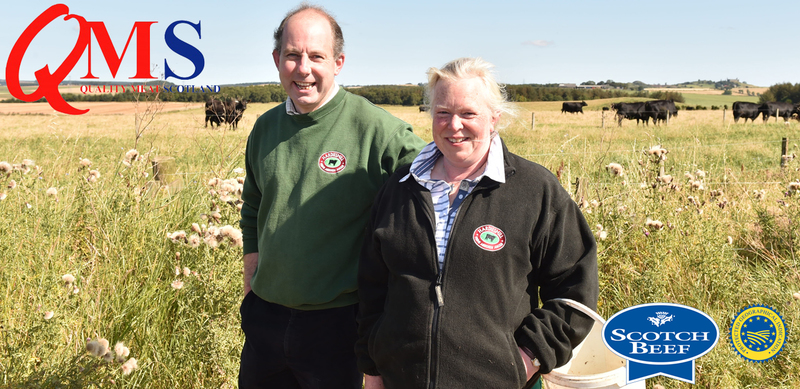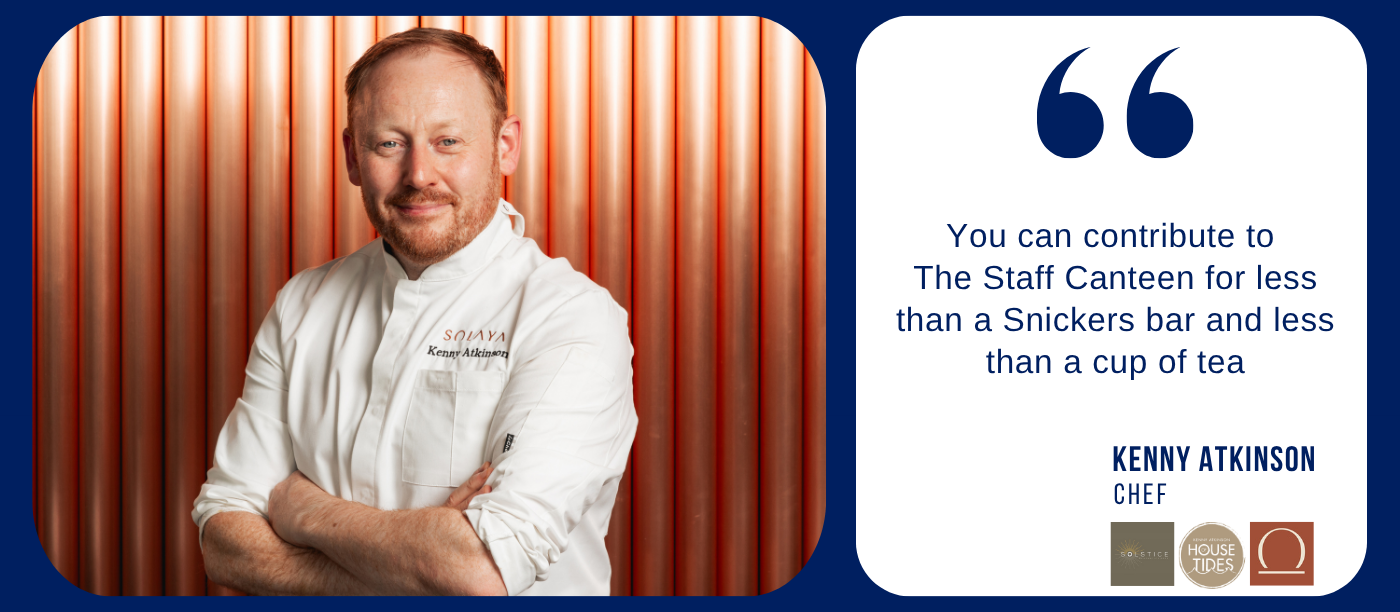The Staff Canteen in association with Quality Meat Scotland, caught up with the owner of Hardiesmill Place, Robin Tuke to find out more about the farmer/chef relationship, how any one part of the supply chain can have an overall effect on the quality of beef and the importance of working with farm assured suppliers.
Hardiesmill Place is a privately run farm in the Scottish Borders, owned by husband and wife, Robin and Alison Tuke. The 482 acre farm is part of Hardiesmill Aberdeen Angus, a Scotch Quality Assured privately owned company with five farms specialising in the production of beef.
 The farm is home to around 250 Pedigree Aberdeen Angus cattle which are split between winter and spring calvers. To ensure their customers receive the best possible eating experience, Robin and his team like to meet all of their prospective clients, even before planning conception, to make sure they share the same ethos which is quite simply, teamwork.
The farm is home to around 250 Pedigree Aberdeen Angus cattle which are split between winter and spring calvers. To ensure their customers receive the best possible eating experience, Robin and his team like to meet all of their prospective clients, even before planning conception, to make sure they share the same ethos which is quite simply, teamwork.
He said: “We will only work with recognised people, we like to meet all of the people we work with as we say this is team work.” He continued: “Before we even work with anyone we get them down on the farm and we will normally have a good two meetings to see how it all goes and if everybody gets on well with each other, which is unusual if foodies don’t get on well with each other, and then we’ll go forward.”
From planning conception right through to the end user tasting the beef, Robin believes each stage of the process is responsible for the quality and end result of the beef.
He said: “From planning conception to the moment it's swallowed, we've found that no one part of the supply chain can make great beef, but any one part can ruin it!” He continued: “If the haulier slams on his breaks and the animal gets hit too hard it will get bruised, if we screw up the feed it we will change the flavour and consistency, if the chef over cooks it it goes wrong, but if we all work as a team we will produce well breeding beef.” 
Robin continues to discuss the relationship between farmer and chef in more detail expanding on the importance of building a strong rapport with his customers to achieve maximum results.
Robin said: “You have to have a close working relationship with the chef and you get two huge benefits out of that. One – is that everyone is singing off the same hymn sheet and two – if they know where the beef comes from then the farm know what the chef is looking for and you get better feedback.”
He added: “We have a view here that if you don’t work well with the chef then we don’t work at all.” This goes for everyone in the supply chain explaining that by having a good relationship with his customers Robin finds they will usually form a longstanding relationship


 The farm is home to around 250 Pedigree Aberdeen Angus cattle which are split between winter and spring calvers. To ensure their customers receive the best possible eating experience, Robin and his team like to meet all of their prospective clients, even before planning conception, to make sure they share the same ethos which is quite simply, teamwork.
The farm is home to around 250 Pedigree Aberdeen Angus cattle which are split between winter and spring calvers. To ensure their customers receive the best possible eating experience, Robin and his team like to meet all of their prospective clients, even before planning conception, to make sure they share the same ethos which is quite simply, teamwork.












